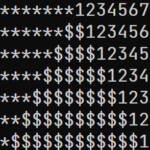C
#include <stdio.h>
int main()
{
int n = 5;// prefer odd
int i,j;
int x = 1, y = n * (n * 2) - (n - 1);
int px,py;
for(i = 1; i <= n; i++)
{
px = x;
py = y;
for (j = 1; j <= n; j++)
{
if (i <= n / 2 + 1)
{
printf("%2d ", px++);
}
else
{
printf("%2d ", py++);
}
}
printf("\n");
x = x + (n * 2);
y = y - (n * 2);
}
return 0;
}C++
#include <iostream.h>
#include <iomanip.h>
int main()
{
int n = 5;// prefer odd
int x = 1, y = n * (n * 2) - (n - 1);
int px,py;
for(int i = 1; i <= n; i++)
{
px = x; py = y;
for(int j = 1; j <= n; j++)
{
if (i <= n / 2 + 1)
{
cout<<setw(3)<<px++;
}
else
{
cout<<setw(3)<<py++;
}
}
cout<<endl;
x = x + (n * 2);
y = y - (n * 2);
}
return 0;
}Java
class PatternProg
{
public static void main(String args[])
{
int n = 5; // prefer odd
int x = 1;
int y = n * (n * 2) - (n - 1);
int px;
int py;
for (int i = 1; i <= n; i++)
{
px = x;
py = y;
for (int j = 1; j <= n; j++)
{
if (i <= n / 2 + 1)
{
System.out.printf("%3d", px++);
}
else
{
System.out.printf("%3d", py++);
}
}
System.out.println();
x = x + (n * 2);
y = y - (n * 2);
}
}
}C#
using System;
class PatternProg
{
public static void Main()
{
int n = 5; // prefer odd
int x = 1;
int y = n * (n * 2) - (n - 1);
int px;
int py;
for (int i = 1; i <= n; i++)
{
px = x;
py = y;
for (int j = 1; j <= n; j++)
{
if (i <= n / 2 + 1)
{
Console.Write("{0,3:D}", px++);
}
else
{
Console.Write("{0,3:D}", py++);
}
}
Console.WriteLine();
x = x + (n * 2);
y = y - (n * 2);
}
Console.ReadKey(true);
}
}Python
n = 5 # prefer odd
d = 1
e = n * (n * 2) - (n - 1)
for x in range(1, n + 1):
px = d
py = e
for y in range(1, n + 1):
if x <= n // 2 + 1:
print("{:3d}".format(px), end="")
px += 1
else:
print("{:3d}".format(py), end="")
py += 1
print()
d = d + (n * 2)
e = e - (n * 2)






